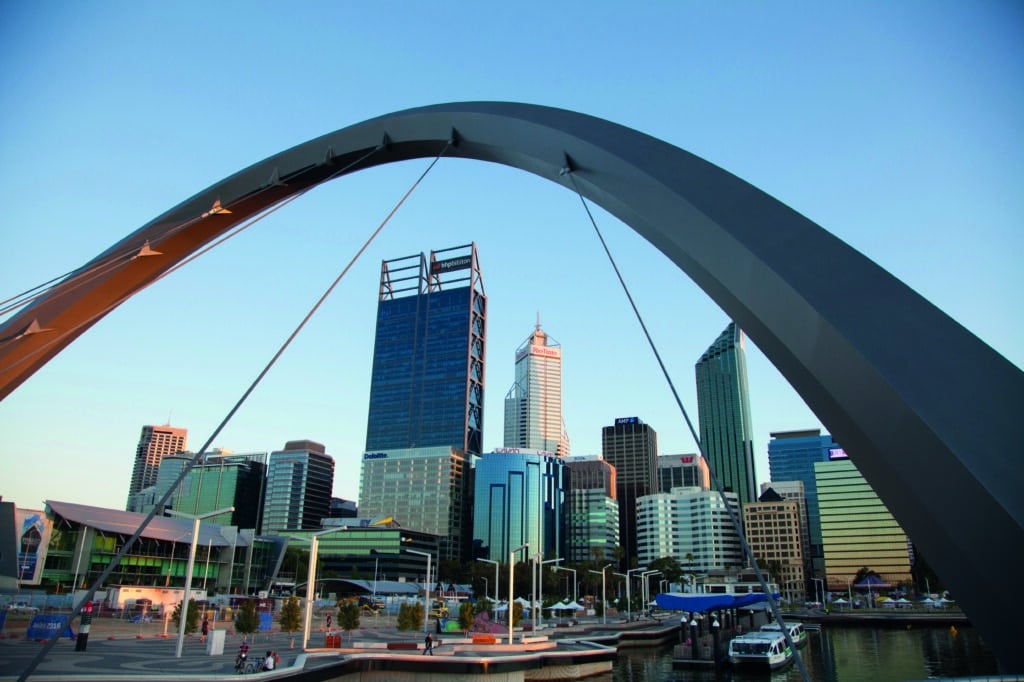 Ram Kuppusamy, Founder and CEO of WA-based Space Angel has a bold ambition to build the world’s first green spaceport, powered by green energy and using sustainable design principles.
Ram Kuppusamy, Founder and CEO of WA-based Space Angel has a bold ambition to build the world’s first green spaceport, powered by green energy and using sustainable design principles.
WA’s space sector is still in its infancy and Kuppusamy believes there is strong opportunity in the future for the State to have an aerospace tourism sector.
He plans to specifically target the scientific, government and commercial uses in addition to the emerging Asia-Pacific tourism market for the green spaceport projects.
In addition, the project offers the opportunities for both secondary and tertiary students to have newfound access to an aerospace facility, and tactile learning.
“We see ourselves as enablers of the space tourism industry and WA is well poised for growth in this area because of the geographical advantages we have,” Kuppusamy says.
“We want to have something like Cape Canaveral in the United States and see Indo-Pacific countries launch from us.”
The project is featured on WA Investments*, where it is seeking up to $250 million. The spaceport is expected to be completed by 2030 at a projected cost of $2 billion.
Kuppusamy says the project has already secured local and international – predominantly United Kingdom and Indian – investment.
Based on the current project timeline, first launch is expected around 2026-27, beginning with smaller launches.
“Construction will be a modularised approach which enables easy scalability – we won’t build everything all at once,” he says.
“We might do a sub-orbital launch initially and that doesn’t require heavy investment and infrastructure. Then we’ll move onto an orbital launch.
“Infrastructure will be built based on which launches are in the pipeline.”
Set for remote WA
The spaceport is planned to be built at one of the State’s most remote southern towns, Eucla. Kuppusamy says the location offers a polar launch environment.
“We were looking for a location in the Indo-Pacific region and Eucla has the adequate conditions, such as weather launch cadence, which will help reduce the cost of launch operations and maintenance due to greater launch opportunities,” he says.
“We have other launches planned in Australia – including on Christmas Island – and internationally, but Eucla will be our anchor launcher and enable the whole space sector for the region.”
He says another positive of the remote location is the ability for testing to have minimal environmental and human impact, while working alongside Indigenous communities to create a mutually beneficial and long-term relationship.
While the remote location has many benefits for the nature of space travel, Kuppusamy acknowledges it poses challenges for project construction.
“The location has no infrastructure or power etc, so we have to find solutions for that, too, because powering up through the grid would be non-existent for some time,” he says.
Green power for take-off
To power the spaceport, Kuppusamy is looking at wind, solar, battery and hydrogen options.
“We are working with various WA and international companies that have projects in the green energy sector,” he says.
“But at the same time, we don’t want to be dependent on them, so we have our chief scientist looking at the sort of technologies that we can bring into the area to run the spaceport power ourselves.”
Kuppusamy is taking inspiration from international airports that are highly regarded for their sustainability qualities.
“There is a lot of activity in the area, and we are keeping abreast on what’s working and what isn’t,” he says.
“The way I see it is very simple – if we want to be competitive in the world market, we need to build a low-cost spaceport.
“I don’t see that happening with high-cost energy. We need a low-cost energy solution.”
This will also allow for the remote communities in the Eucla area to have greater access to reliable and green energy sources, Kuppusamy says.
Opportunities with India
Kuppusamy believes India offers collaboration opportunities, despite having a competitive space industry of its own. Space Angel is already working with multiple Indian companies on its spaceport project.
“India is really leading the way in space manufacturing, and we see them as being even more competitive than the United States,” he says.
“India is much more cost-effective than the US.”
Kuppusamy says while India’s space industry is more established than WA’s, it is world leading in autonomous and remote operation technologies that are currently being leveraged by mining, oil and gas industries.
“India also needs our capabilities – they are seeking support from our industry,” he says.
Navigating challenges
While Kuppusamy’s vision is bold, he is pragmatic about the challenges ahead.
“We have a very realistic approach, knowing the challenges in construction so we have taken a step back and have a much smarter approach,” he says.
“That’s why we are doing a modularised approach – it is more realistic and less capital intensive.”
The marketplace also poses barriers, which are impacted by global conflicts and geo-political tensions.
“Markets change fast, but it’s how you innovate and adapt to changes – there’s always going to be disruptions, whether it’s a competitor, or in world markets, or oil prices. It’s about how we deal with the constant change and instability,” Kuppusamy says.
*WA Investments is a collaboration between CCIWA and Invest and Trade WA.
For information about showcasing your project or investment opportunities, visit WA Investments.












